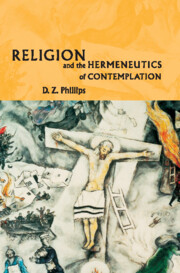Book contents
- Frontmatter
- Contents
- Preface and acknowledgements
- 1 Hermeneutics and the philosophical future of religious studies
- 2 Bernard Williams on the gods and us
- 3 Hume's legacy
- 4 Feuerbach: religion's secret?
- 5 Marx and Engels: religion, alienation and compensation
- 6 Tylor and Frazer: are religious beliefs mistaken hypotheses?
- 7 Marett: primitive reactions
- 8 Freud: the battle for ‘earliest’ things
- 9 Durkheim: religion as a social construct
- 10 Lévy-Bruhl: primitive logic
- 11 Berger: the avoidance of discourse
- 12 Winch: trying to understand
- 13 Understanding: a philosophical vocation
- Index of names
- Index of subjects
5 - Marx and Engels: religion, alienation and compensation
Published online by Cambridge University Press: 03 December 2009
- Frontmatter
- Contents
- Preface and acknowledgements
- 1 Hermeneutics and the philosophical future of religious studies
- 2 Bernard Williams on the gods and us
- 3 Hume's legacy
- 4 Feuerbach: religion's secret?
- 5 Marx and Engels: religion, alienation and compensation
- 6 Tylor and Frazer: are religious beliefs mistaken hypotheses?
- 7 Marett: primitive reactions
- 8 Freud: the battle for ‘earliest’ things
- 9 Durkheim: religion as a social construct
- 10 Lévy-Bruhl: primitive logic
- 11 Berger: the avoidance of discourse
- 12 Winch: trying to understand
- 13 Understanding: a philosophical vocation
- Index of names
- Index of subjects
Summary
MARXISM AND MONISM
In the previous chapter we saw how Feuerbach inverted the priorities of Hegel's metaphysical system. To use Wittgenstein's phrase, he attempted to bring words back from their metaphysical to their ordinary use. This project, he hoped, would determine the future course of philosophy:
The philosophy of the future has the task of leading philosophy from the realm of ‘departed souls’ back into the realm of embodied and living souls; of pulling philosophy from the divine, self-sufficient bliss in the realm of ideas into human misery. To this end, it needs nothing more than human understanding and human speech. To think, speak and act in a pure and true human fashion will, however, be granted only to future generations. At present, the task is not to present man as such, but to pull him out of the mud in which he has been embedded.
If we equate ‘religion’, in the broadest sense, with any kind of metaphysical transcendentalism, we can see how Feuerbach could accuse philosophy of having theology as its unacknowledged subject. We can also see why Marx said, although religion was a minor part of his system, ‘For Germany the criticism of religion is in the main complete, and criticism of religion is the premise of all criticism.’
Feuerbach's project was greeted with enthusiasm by Marx and Engels, but they did not think he pressed his analysis far enough. It could be put by saying that, on their view, although Feuerbach attempted to bring words back from their metaphysical to their ordinary use, he did not give an adequate analysis of what ‘the ordinary’ amounts to.
- Type
- Chapter
- Information
- Religion and the Hermeneutics of Contemplation , pp. 130 - 145Publisher: Cambridge University PressPrint publication year: 2001



